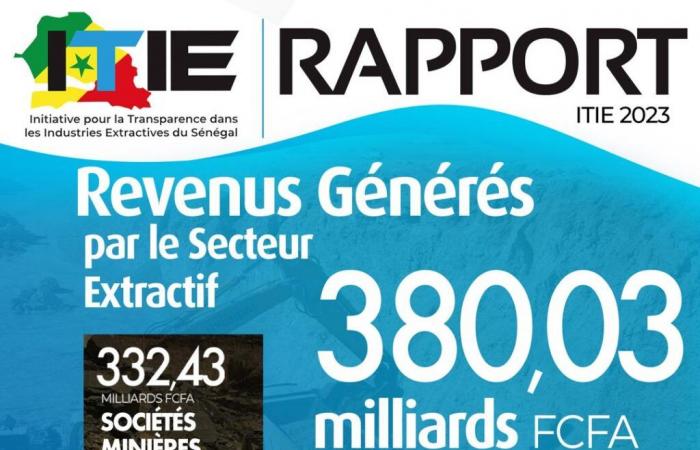
The Extractive Industries Transparency Initiative (EITI) has “untapped potential to respond to the growing challenges” of this crucial sector for the national economy, experts said in a contribution of which PressAfrik received a copy.
According to these experts, the EITI has “still untapped potential” to respond to the growing challenges of this crucial sector for the national economy, affirming that since its membership in 2013 in the Extractive Industries Transparency Initiative (EITI) , Senegal has taken significant steps to improve the governance of its extractive sector.
An ambitious EITI to respond to emerging challenges.
In their analysis, the experts – Elhadj Amath Diallo, Abdou Aziz Diop, Dr Moustapha Fall and Cheikh Tidiane Touré – propose a structural transformation of the EITI to make it a real lever of governance and innovation.
Thus, they recommend:
• Transformation into an independent administrative authority: This structure could produce current reports on the dynamics of the extractive sector, beyond simple compliance requirements.
• Institutionalization as a consultative body: The EITI could become a strategic partner of key ministries (Mines, Finance, Environment) for the evaluation of public policies.
• Inclusive partnerships: By collaborating with the National Assembly, research centers and local communities, the EITI could experiment with innovative and inclusive projects.
• Integrating predictive analytics: Through advanced tools and partnerships with institutions like ANSD, the EITI could anticipate sector trends and strengthen planning.
Return to a context marked by opacity
Before Senegal joined the EITI, the extractive sector was characterized by opaque governance. Administrations worked in silos, information systems were deficient, and reliable data on production, exports or income was non-existent. This information vacuum fueled a speculative environment and harmed transparency, revenue mobilization and investor confidence.
Integration into the EITI has been a game-changer. It allowed Senegal to measure itself against international standards, evaluate its regulatory texts and adopt good practices.
Today, the EITI is recognized as a major source of reliable information across the extractive sector value chain, from company payments to their contribution to GDP.
The achievements of ten years of EITI in Senegal
Ten years after the adoption of the EITI Standard, Senegal has made significant progress:
• Stakeholder engagement: Public administrations, civil society and the private sector actively participate in transparency efforts.
• Reduction of information asymmetries: Citizens now have detailed annual reports on sector payments, production and exports.
• Legal reforms: The EITI has driven several reforms, such as the identification of beneficial owners, the improvement of mining taxation and the creation of equalization funds.
• International recognition: In 2023, Dakar hosted the first global EITI conference in Africa, marking recognition of Senegal’s role in the initiative.
Despite these successes, the authors of this article believe that the EITI can play an even more strategic role in maximizing the socio-economic benefits of the extractive sector.
An expanded role to maximize economic benefits
According to these same sources, the EITI could also advise the State in the review of extractive contracts, monitor investments made from intergenerational funds and ensure the regulation of the sector to avoid social conflicts.
By expanding the scope of reporting entities, the EITI would provide a more global vision of the sector, allowing Senegal to better respond to citizens’ expectations, attract more investors and maximize the socio-economic benefits of the extractive sector.
For an inclusive and sustainable extractive sector
The experts conclude by calling on the Senegalese authorities to adopt an ambitious vision for the EITI. “Using the resources offered by the EITI to maximize economic benefits and ensure sustainable development is not a luxury, but a necessity,” they insist.
Through this transformation, the EITI would become a central pillar of natural resource governance, serving a resilient and inclusive extractive sector, a real engine of development for Senegal.





